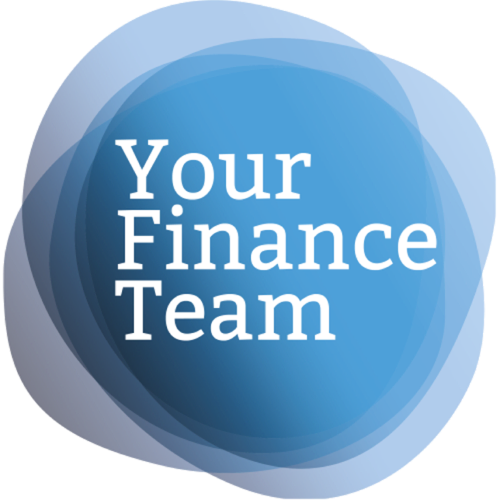If you need a vehicle for your business then what is the best way to pay for it?
This is a question that keeps many of our clients up at night so in this post, we’re going to look at the subject.
Now we have to add the traditional accountants’ health warning here – there are lots of things that could be different about your personal situation and we can’t possibly cover everything.
And we’re not going to be covering tax, because that’s equally as complicated if not more so. But this guide should give you a general idea of the things to think about .
Naturally, if there’s something we don’t cover, then you can call us and we’ll be happy to talk you through the issues.
So in this post, we are looking at.
- Using your company’s cash
- Getting a bank loan
- Financing through a lease
- Using Hire Purchase
- Crowdfunding
- Borrowing from friends and family
- Renting
Using your company’s cash
This is probably the quickest and easiest method of financing a business vehicle and it simply paying for it from your bank account.
Now, this presupposes that you have actually got enough cash sitting around doing nothing, which obviously isn’t the case for most businesses and startups.
If you have got the cash, then it is quick, easy and you could end up negotiating a better deal for a quick sale.
But there’s a reason why you may not want to do this and that is called an ‘opportunity cost’.
If you haven’t come across the term before, it simply means what you forego as a result of taking a particular course of action.
So in the case of a car, you may choose to use £30,000 to buy a vehicle, or you could invest it in shares. Suppose those shares make you 10% in dividends and growth. £3,000 is your opportunity cost.
But for business owners, opportunity cost means something much more fundamental in that it is what your business could be using it for.
So maybe you have £30,000 that you could spend on marketing that would bring in £120,000 of profit, or a new machine that would save you £60,000 of costs. They would be an example of different ways you could use the money to better effect.
So whilst paying cash for a vehicle might seem like a good idea, it could end up costing you more in the long-run.
Getting a bank loan
A bank loan is a good way to finance a capital asset and with interest rates still being at a very low ebb, it is also very cheap.
If you have a good relationship with your bank then you may find that this is a very quick and painless process and having the cash to hand gives you bargaining power with the dealership.
But it is also true to say that some banks aren’t exactly known for their fleet-footed approach to lending and if you are a non-standard case then expect to have to jump through a few hoops.
You may have to produce a forecast or business plan for bigger loans and company owners may be required to agree to directors’ guarantees.
Financing through a lease
Leasing is one of the most popular ways of financing a new vehicle because it is a simple process that doesn’t require a lot of upfront capital.
A lease is a great way to make sure your company has modern, reliable and clean vehicles at all times and you can even add in extra costs like signwriting or boarding and shelving for a van.
The big downside is that you won’t own anything at the end of the lease, so if you have looked after a vehicle for 3 to 5 years you’ll just be handing it back to the finance company.
There are a lot of companies out there that will offer lease options and dealers will also have their own products so in a competitive market, make sure you shop around.
Be aware also that just like bank loans, there may be hoops to jump through, especially if you are a new company. Also some lease companies are better than others on the admin front so check out reviews too.
Using Hire Purchase
Hire purchase (HP) works in a very similar way to a lease, but with the big benefit that you own the vehicle at the end of the contract. There are also finance products like contract purchase or finance leases that do a similar job.
This method of purchase has the same benefits as a lease because you can access a brand new vehicle but pay as you go but of course, as you own the asset at the end of the contract it costs more on a monthly basis.
Remember that you don’t own the vehicle until you’ve made your last payment on HP and if you are using something like contract purchase you may have to make a balloon payment at the end.
Crowdfunding
This method of funding assets has really taken off in recent years and provides companies that may not be able to access traditional finance to get the cash they need at a fair rate of interest.
The rate of interest can be very variable here because it is based on how attractive the company is as a lending proposition but if you have a good story to tell you can find your project funded very quickly indeed.
These can take some time to set up, and you may have to put some work in to develop a pitch and answer lender questions as you go along but if you can’t get finance from your bank then this is a good option.
Borrowing from friends and family
If you have friends and family that have spare cash then this is certainly a temptation.
You may get cash at little or no interest and you could have your money very quickly but there is a very strong health warning here.
Entering into a loan agreement with people who are dear to you can turn sour very quickly indeed if your business is unable to pay its instalments.
If you do have to do this then make sure everyone is aware of the risks and prepare a legal contract setting out what you will do, what payments you will make and what interest you will pay.
Whilst it seems like a really good idea at the time, we’d suggest that this should be the very last option on your list.
Renting
This is a bit left-field because you aren’t really ‘financing’ a vehicle as such.
But a long-term rental agreement serves exactly the same function as a lease and could end up being cheaper.
The big benefit is that there are no issues for you regarding maintenance, MOTs or servicing as this will all be taken care of by the hire company.
You’ll be getting a modern and reliable vehicle, even if it may not be totally brand new.
Arguably the best benefit of a rental is the flexibility that is available. For example, if you have a business that experiences seasonal variations like at Christmas or the summer months then it makes sense to only pay for a vehicle when you actually need it and then return it when you don’t.
The downside is that on a monthly basis it may be a little more expensive and you may not be able to signwrite the vehicle.
Comparison chart
We’ve produced a high-level comparison chart based on some of the costs we’ve found by researching the subject.
This comes with the caveat that the actual prices you pay may be very different dependent upon what vehicle you need, your company credit rating and the market conditions at the time.
For example, lease prices go down massively if a manufacturer has a glut of a particular vehicle it needs to get rid of but as we know interest rates are variable, so if they go up, you’ll pay more on a loan.
Also different companies levy different set up and arrangement fees, so if you are considering entering into a contract then make sure you see all the numbers first!
| Cash | Bank loan (7.5%) | Lease (60 months) | HP (60 months) | Crowd funding | Renting | |
| Down payment (ex VAT) | £25,021.36 | £0.00 | £935.79 | £1,100.00 | £1,250.00 | £0.00 |
| Monthly cost (ex VAT) | £0.00 | £502.47 | £311.93 | £481.91 | £494.00 | £375.00 |
| Interest cost | £0.00 | £5,148.20 | 0 | £4,864.60 | £3,400.00 | £0.00 |
| Depreciation | £13,021.36 | £13,021.36 | 0 | £13,021.36 | £13,021.36 | £0.00 |
| Resale value | (£12,000) | (£12,000) | £0.00 | (£12,000) | (£12,000) | £0.00 |
| Servicing etc | £3,450.00 | £3,450.00 | £3,450.00 | £3,450.00 | £3,450.00 | 0 |
| Net cost | £16,471.36 | £21,598.20 | £22,165.80 | £21,464.60 | £22,340.00 | £22,500.00 |
| Own the vehicle at the end? | Yes | Yes | No | Yes | Yes | No |
As you can see from the above, paying cash for a vehicle is much cheaper than any other option but this doesn’t factor in any opportunity cost. If you could invest that money and make only 5% per year in your business then the net cost would be £23,384 making it the most expensive option!
Summary: financing a vehicle is a personal thing
As you can see from this article and from our comparison chart, there are good and bad things about each financing option.
And to a very large extent, the way you finance your vehicle comes down to your personal situation and often the way you view money.
You may prefer to pay cash upfront, knowing that you then own the vehicle outright and you don’t have to worry about monthly payments.
You may not have cash in which case a low monthly lease payment is the right way to go.
Or you may have a great relationship with your bank manager who offers you a ridiculously low interest rate on a loan.
With this in mind, if you want to talk to someone about the situation in your particular case, and the tax implications of each of these methods of financing, get in touch and we’ll talk you through your options.
Costs table notes.
All costs based on a new Ford Transit Connect, L1, 120ps.
HP and lease costs do not include servicing and tax.
Lease costs from https://www.vanarama.com/ford-van-leasing/transit-connect/1-5-ecoblue-120ps-limited-van-9866.html
Crowdfunding costs from https://www.fundingcircle.com/uk/small-business-loans-calculator/
HP costs from https://www.themoneycalculator.com/vehicle-finance/calculators/hp-hire-purchase-calculator/
Loan calculations from https://www.barclays.co.uk/loans/calculator/#calculator
Vehicle price from https://www.ford.co.uk/shop/price-and-locate/build-and-price-cv#/catalogID/WAEGB-CHC-2018-TransitConnectGBR202200/?code=DGADU_DR–C_EN-ZT_TR-E8:BS-AE
Rental costs from https://www.apexrental.co.uk/rental_vehicle/290.aspx

